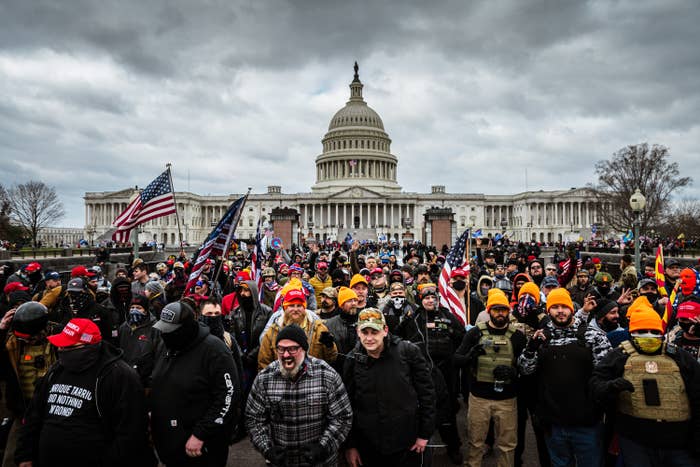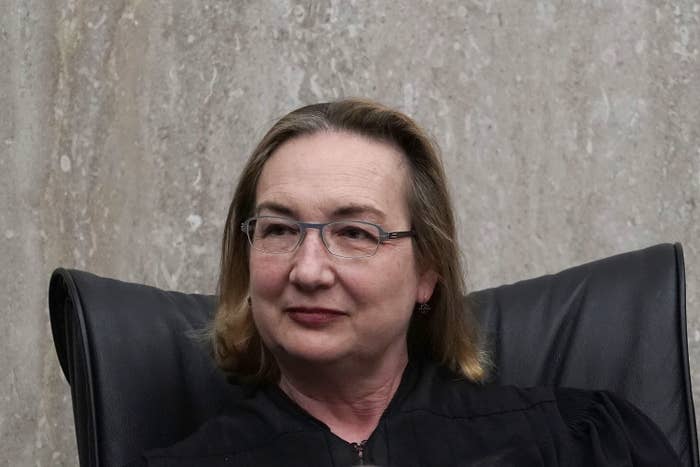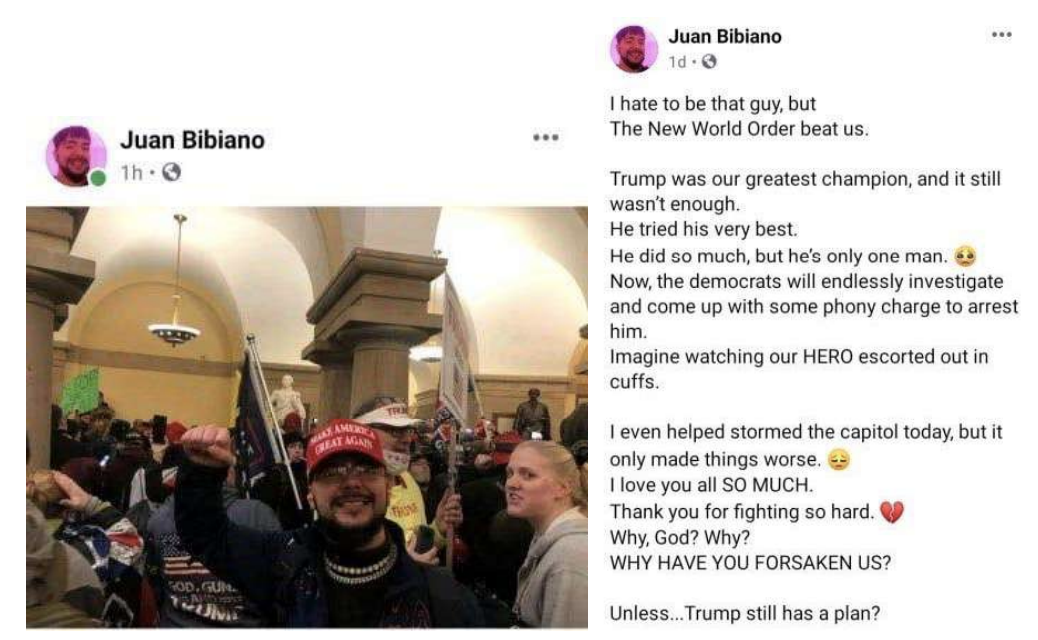
WASHINGTON — A federal judge on Thursday pushed back on the government’s decision to ink deals in the Capitol riot cases that involve low-level misdemeanors, questioning whether that was appropriate for people involved in “terrorizing members of Congress.”
The unusual exchange came during a plea hearing for Jack Jesse Griffith, who was charged solely with misdemeanor crimes for going into the Capitol on Jan. 6; he wasn’t accused of violence or property destruction. As Griffith prepared to plead guilty to one count of parading, demonstrating, or picketing in a Capitol building — a class B misdemeanor with a maximum sentence of six months in jail — US District Chief Judge Beryl Howell asked the prosecutor to explain why Griffith’s deal involved a class of crime typically reserved for people who did things like trespass in a national park at night.
“I'm just curious — does the government have any concern given the factual predicate at issue here, of the defendant joining a mob, breaking into the Capitol building through a broken door, wandering through the Capitol building and stopping a constitutionally mandated duty of the Congress and terrorizing members of Congress, the vice president, who had to be evacuated?” Howell asked. “Does the government, in agreeing to the petty offense in this case, have any concern about deterrence?”
It was the second time this week that a judge questioned whether defendants charged in connection with Jan. 6 are getting off too lightly in plea deals, even if they’re not accused of more serious criminal activity, such as attacking police. On Tuesday, US District Judge Reggie Walton, one of Howell’s colleagues on the federal bench in Washington, DC, briefly pondered whether he should jail two defendants who signed a deal similar to Griffith’s, given their involvement in the “atrocious act” of storming the Capitol; he ultimately allowed them to go home until they’re sentenced in October.
Griffith is the 27th defendant charged in the Jan. 6 riots to appear before a judge to plead guilty, and the 21st person to plead guilty to a single misdemeanor as part of an agreement with prosecutors — either the parading count that Griffith pleaded guilty to or disorderly conduct in a Capitol building, which also has a maximum sentence of six months in jail.

Howell in the end accepted Griffith’s guilty plea, but, like Walton, put the government and defense through several paces before she did. She asked whether the government was concerned that an agreement involving a low-level misdemeanor was enough not only to deter Griffith from participating in a similar event in the future but also the broader universe of the hundreds of people who descended on the Capitol that day. The circumstance that led to the Jan. 6 insurrection, a presidential election, happens every four years, the judge noted.
Assistant US Attorney Mitra Jafary-Hariri and Griffith’s lawyer H. Heather Shaner defended the deal, telling Howell that Griffith had expressed interest in pleading guilty early on — something defendants throughout the criminal justice system typically get credit for — and had cooperated with law enforcement officials by turning over his devices and giving them access to his social media. Jafary-Hariri said that under those circumstances, the government decided it was “willing to resolve it this way.”
Howell pushed back on the notion that Griffith had earned the deal because of his cooperation, pointing out that the cooperation spelled out in the plea agreement was limited to sharing his online activity with investigators, not an ongoing commitment to speaking with law enforcement or testifying before a grand jury. Those types of cooperation agreements have cropped up in plea deals involving defendants accused of conspiring with other people to attack the Capitol.
Howell has previously questioned whether the charges filed against people arrested for participating in the riots were severe enough to reflect the full extent of what happened on Jan. 6. In late January, she ordered defendant Richard Barnett to stay in jail after he was arrested on charges of bringing a stun device into the Capitol as well as several misdemeanors and said at the time that she thought the charges were “too benign” to capture the scope of Barnett's and others’ participation. Barnett, who was photographed sitting in a chair in House Speaker Nancy Pelosi’s office with his foot on the desk, was later allowed to go home while his case is pending.
"What happened on that day is criminal activity that is destined to go down in the history books of this country," Howell said during the January hearing. "This was not a peaceful protest. Hundreds of people came to Washington, DC, to disrupt the transition of power and to thwart Congress, a branch of the federal government, in carrying out its duties, in fulfilling its constitutional task of officially certifying the votes of the Electoral College.”
A spokesperson for the US attorney’s office declined to comment. Shaner, asked via email if she wanted to comment on Howell’s remarks, replied, “You heard her. She made herself very clear.”

Griffith was arrested after an informant alerted the FBI about his Facebook posts, including a photo of himself inside the building smiling with his fist in the air and text that included the line, “I even helped stormed the capitol today, but it only made things worse," followed by a sad face emoji. Investigators identified Griffith in a video that one of his codefendants, Matthew Bledsoe, allegedly posted on Instagram that showed the two men just outside a door to the Capitol. In that video, Griffith “screams in excitement,” according to the FBI’s description in charging papers. (Bledsoe has not pleaded guilty.)
More than 550 people have been charged so far with participating in the riots. The guilty pleas entered to date represent a small percentage of those cases but have steadily started to come in over the past few weeks.

